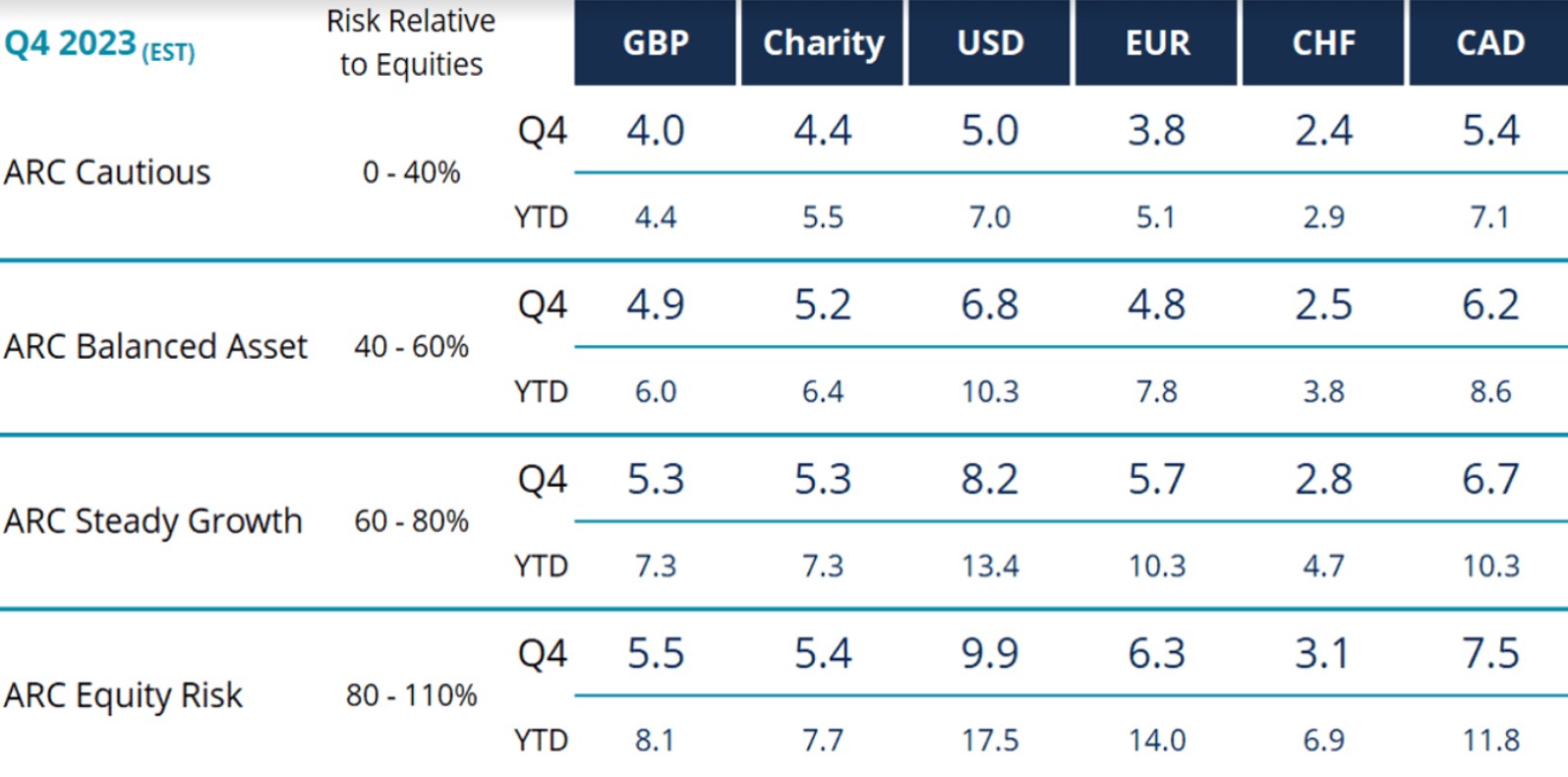Statistics
Private Client Portfolios Repair Some Damage – ARC

Not all of the damage inflicted in 2022 appears to have been repaired, but rising markets in 2023 have partly erased (some) of the pain.
Recoveries in equity and bond markets during 2023
have partly erased (some) of the pain of the 2022 rout as
far as private client investors are concerned, data this week
from Asset Risk
Consultants showed.
In general, 2023 gains have not fully compensated for the
bloodletting of the previous year, however.
Nominal returns for private client investors were a little above
average, ARC said. The table below sets out the estimated returns
for private client portfolios across the five PCI currencies and
four PCI risk categories.

ARC’s Indices compare performance data from all of the
contributing firms taking account of the risk of the portfolios
and comparing the net of fee outcomes received by investors.
Indices collect performance of more than 350,000 investment
portfolios, net of fees, supplied by more than 140
investment managers to establish the actual returns being seen
by clients. Managers include Barclays Wealth, Brewin
Dolphin, Investec, Rathbones and UBS.
The need for end clients, and their advisors to receive
unconflicted, clear and understandable data on how well firms
perform is not a new requirement. The pitfalls of simply
comparing performance against a market benchmark, or focusing on
whether a portfolio is “top-quartile” or “best-in-class” or some
other metric are well known. That said, comparisons of some kind
are necessary.
This news service interviewed
ARC back in October 2022 about its approach and the importance of
such figures for wealth managers handling tasks such as preparing
for the UK’s new Consumer Duty regime (now in force).
The data shows that in local currency terms, gains were highest
for dollar investors. However, when adjusted for currency moves,
returns for private clients in the same risk category were
similar regardless of reference currency.
“After the painful normalisation of interest rates in 2022, bond
markets seemed to offer reasonable value and, despite tighter
monetary policy and the threat of recession, company profits
proved resilient,” ARC said.
The breadth of equity market gains was “extremely
narrow,” ARC said, noting that the rise in the world equity
market index being driven by the 10 largest US-listed “mega-cap”
stocks (Alphabet, Amazon, Apple, Berkshire Hathaway, Broadcom, JP
Morgan, Meta, Microsoft, Nvidia, and Tesla). In 2023, these
stocks were up, on average, about 90 per cent and up around 85
per cent on a market capitalisation-weighted basis, with the
other 490 stocks making up the S&P 500 on average delivering
a return of zero.
For investors in sectors such as emerging market hedge funds,
meanwhile, recent figures showed that they have enjoyed, on
average, a strong year of gains across most strategies (with a
few notable exceptions). See
here. In October 2022 this
news organisation spoke to Performance
Watcher by IBO, a Swiss organisation, about the demands of
providing trustworthy and unconflicted data on wealth management
portfolios.
